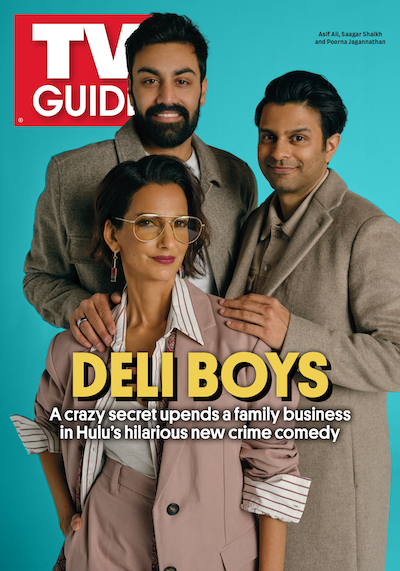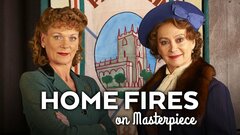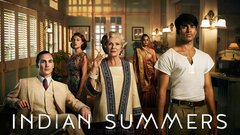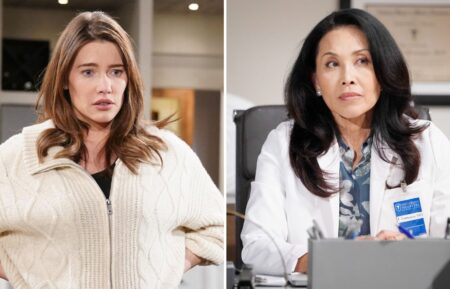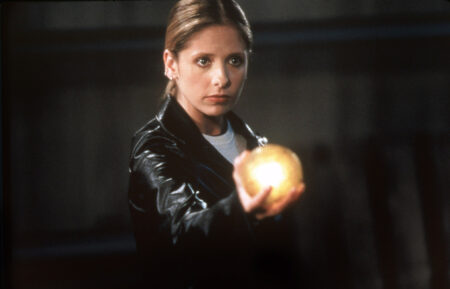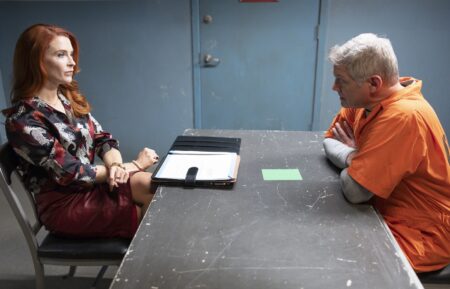Ask Matt: ‘The Good Wife’ Finale, Mopey ‘Nashville’, PBS’s Schedule and More
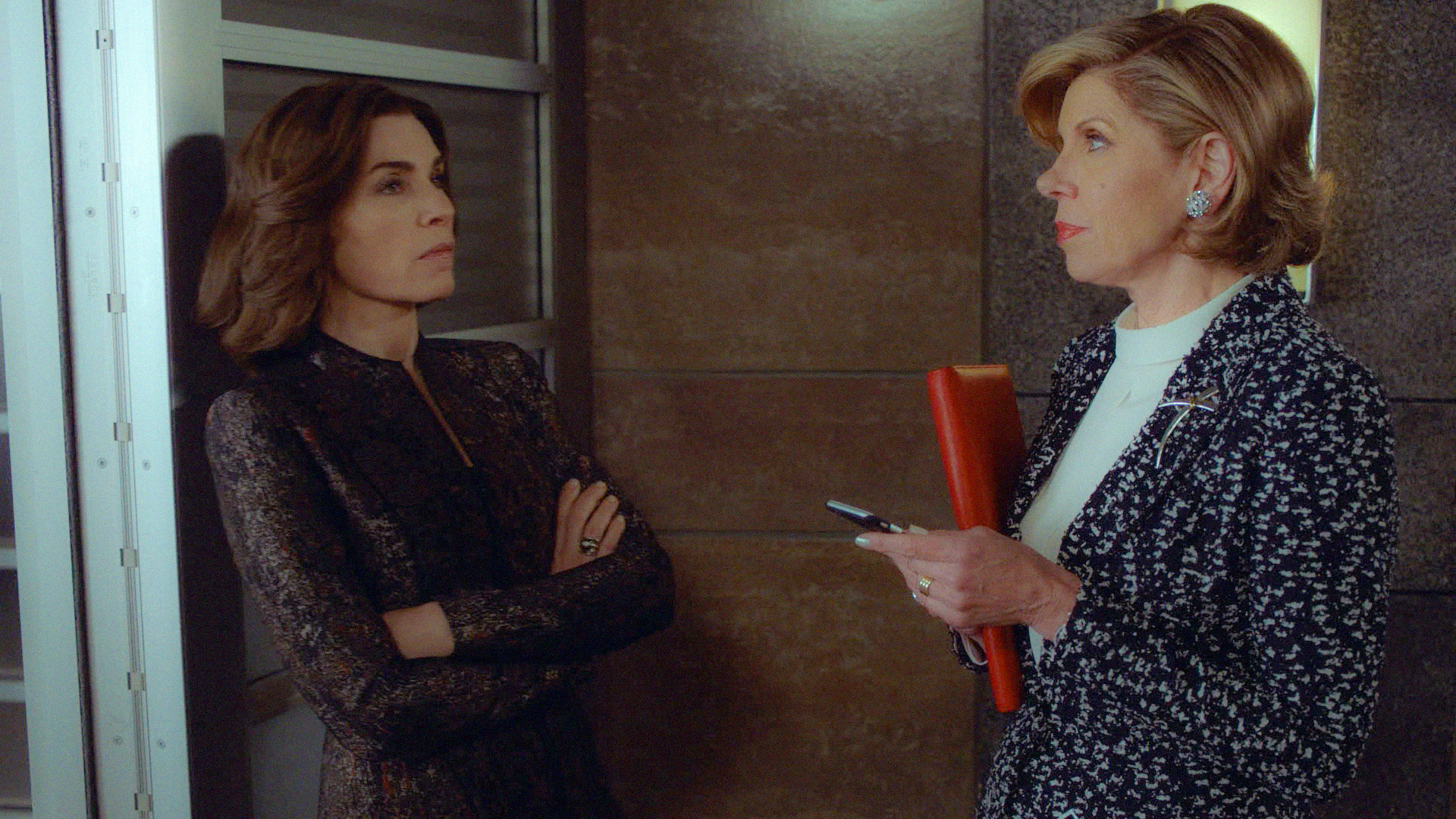
Welcome to the weekly Q&A with TV critic (also known to some TV fans as their “TV therapist”) Matt Roush, who’ll address whatever you love, loathe, are confused or frustrated or thrilled by in today’s vast TV landscape. One caution: This is a spoiler-free zone, so we won’t be addressing upcoming storylines unless it’s common knowledge. Please send your questions and comments to [email protected] (or use the form at the end of the column) and follow me on Twitter.
Question: A thought or two about that finale of The Good Wife. I am satisfied with where they left the story, and in general don’t have any complaints about the episode, but I did find it odd that after all that has happened in this series, the very last thing we see is Alicia being slapped by Diane. Normally I would think that the writers would have the last thing we see be filled with special significance, but Diane slapping Alicia for embarrassing Diane’s husband in court hardly seems to be such an important thing that it needs to be the image we are left with at the end. I did not watch the writers’ online talk after the show, but I read in your review of the episode what you said about them wanting to “bookend” the slap with the slap on the very first episode. Still, I wonder whether the slap was meant to have more significance than just Diane’s personal pique. In other words, did Alicia deserve a slap because she left Peter? Because she wasn’t going to leave Peter? Because she stuck by Peter way too long? Probably I’m reading too much into this, but the slap being the last thing we see, I wondered whether you had any thoughts about that. — Paul
Matt Roush: The slap, according to the writers, had less to do with Alicia’s relationship to Peter than with how much Alicia had become like Peter. And to be precise, the last thing we see isn’t the slap, but Alicia’s reaction to it, and her pulling herself together and composing herself to take on the world as she walks into the future. She won this victory for Peter, and for herself—with him free from prison, she can now free herself from him for good—but it came at an emotional cost, with the betrayal of a great friend and colleague. The slap was meant to resonate with a sting, to remind us that while we may root for Alicia, we also must lament the tradeoffs that got her to where she is as the series ends. That’s smart, dramatic, adult and provocative, and the opposite of pandering: The Good Wife in a nutshell.
Who Was the Real Good Wife?
Question: As I watched the finale of The Good Wife, what occurred to me was that perhaps the titular character—at least over the last couple of seasons—was Diane Lockhart. She is a completely confident, sexy and independent woman who deeply loves and supports her partner. She didn’t hem and haw or consult with the dead when she proposed to Kurt—she knew they were a love match, and their partnership needed to be protected and defended, despite some of their fundamental political differences. Alicia on the other hand has never really been loyal to anyone: not to Will, not to Cary, not to Diane and certainly not to herself. Of course she was loyal to Peter, which was baffling enough in the first episode—but still in the finale? There she is, holding hands with Peter again, while looking off to the side to see if Jason (another man who can’t fully commit) is waiting for her. Meanwhile, the men of the Democratic party—led by Eli—are meeting in secret to figure out Alicia’s political future. The only problem is, Alicia has not been included in their discussions. As a woman and a feminist, I find all this troubling and insulting. I have no problem with Alicia not being with Jason in the finale, but it should have ended on her terms. The same can be said with Peter. Why oh why did she have to trail after him (holding his freaking hand!) in that final humiliating press conference? I know you rarely criticize this series, but can you see from a feminist point of view that this ending left many of us pulling out our hair? (Though I did cheer when Diane slapped Alicia—more evidence that she was the good wife.) – Jan
Matt Roush: I’m with you on the Power of Diane, and the brilliance of Christine Baranski’s portrayal of this formidable and complicated woman. But to stand up for Alicia (and Julianna Margulies’ subtle and compelling performance) as well: The telling moment in the finale wasn’t that she stood by Peter and held his hand, which she had said she would do from the start—she understands how the world works, like it or not, she’s got a pragmatic side—but the second he reached for her when it was over, she was gone, in search (fruitless for now) of Jason. One of the best things about The Good Wife was its willingness to show Alicia in something other than a positive light, even to the end. It makes her more interesting, and I’m delighted to know that the slap was actually greeted with cheers, not just gasps, in some corners. And regarding Eli’s machinations with the power/money brokers: Do you really think they’ll be able to coerce Alicia into jumping back into the political arena after all that went down? I wish there had been a scene where Eli presents her with the key to Peter’s shattered kingdom and she hurls it back at him with a “no thanks.” Or maybe that’s just more ambiguity for us to chew on. But I’m pretty sure we were all meant to be insulted by Eli taking her acquiescence for granted as he blindly pursued his ambitions. Will he never learn?
And What’s With the Not-So-Good Husband?
Question: With The Good Wife now ending, I have always wondered this. Why has Chris Noth always been listed as a “Special Guest Star,” when he is on every week? Shouldn’t be a regular cast member? — Darren
Matt Roush: Chris Noth’s status was more that of a recurring regular—he wasn’t in all of the episodes, but Peter was a constant presence in the series—and the billing is just one of those contractual things that only make sense to agents and lawyers. (See Heather Locklear on Melrose Place.)
Can Network TV Hit These Heights Again?
Question: Do you know the German word for when you miss something that isn’t gone yet? There must be one. Whatever it is, I’m that. These last few episodes of The Good Wife have been excruciating to watch because they are so… good. Watching writing and acting of this rare caliber, knowing it’s ending, is painful, but in the best way. Will we ever get a show this great on network TV again? As much as I enjoy Elementary and the various superhero shows, they don’t hold a candle to The Good Wife, not to mention cable shows like The Americans, Orphan Black or a dozen others (or even PBS’ Masterpiece Mystery). Sigh… It’s gonna take many pints of ice cream to get over this forced break-up. — Woody
Matt Roush: Some would be reaching for the red wine over ice cream, but I get your point. The Good Wife has for years been our go-to show to demonstrate that network TV could compete with the best of cable/streaming dramas (and PBS), but I’m not giving up on the networks just yet. Shows like ABC’s American Crime—an anthology, and of shorter duration than most series, and hardly a ratings hit—and experiments like NBC’s now-defunct Hannibal give up hope that there’s still the possibility for ambitious, risky and high-aiming drama on network TV amid all the formula flotsam. And we’re overdue a new mass-appeal, high-quality hit like The West Wing or ER, so I’m staying open-minded for now, especially with the network Upfronts just a week away. But as I noted in my review of the Good Wife finale, this does leave a big hole for many of us on Sundays.
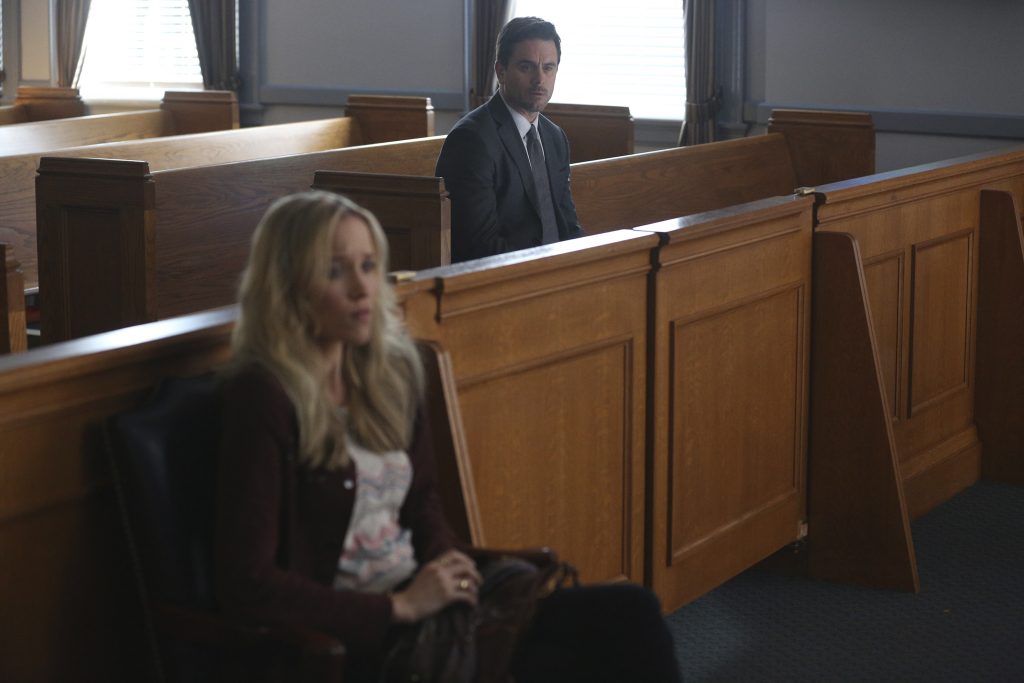
Is all hope lost in Nashville?
Nashville Oversings the Blues
Question: Please take me inside the head of a TV writer—specifically, the heads of the writers of Nashville. I am trying to hang on. Truly. But why do they think that what their (few, remaining) viewers really want to see is abject misery for every single character we care about? Or that we want to see all the mopey/dull characters (read: Maddie, Layla, Cash) get tons of screen time and happy endings at the expense of everyone else? I’m still hoping for a Season 5 renewal. But, please, Herskovitz and Zwick, bring back some of the joy. – Kirsten
Matt Roush: I really would love to see what Marshall Herskovitz and Ed Zwick, the producers of thirtysomething, My So-Called Life and Once and Again, could do with this format if indeed they take over the show if there is a fifth season. It seems such an odd fit, but anything to rescue Nashville from its current doldrums would be welcome. Every drama requires conflict, that’s a given, but this show tends to telegraph its unhappy twists and then draws them out to where you want to slap even the characters you like. Last week, it really did feel like piling on, especially when Deacon stupidly picked a fight (even if he didn’t start it) with his curmudgeonly business partner Frankie and ended up in jail at the worst possible time. You could get eye strain from rolling them at moments like that.
Question: There has been much discussion on the Internet about how depressing the latest episode of Nashville was. That nearly every character is not happy at the moment and each is having to deal with major issues. Isn’t that what this show has always been about since its inception? Especially being that the season (or series) finale will be airing shortly, isn’t it standard procedure to be displaying many of the characters in jeopardy? I for one enjoyed the downbeat episode immensely, although hoping for some brighter moments like when Will Lexington heard his new song on the radio or when Juliette saw that she was nominated for an Academy Award. I would love to hear your thoughts. — Fred
Matt Roush: OK, let’s examine those short-lived happy moments. Juliette gets an Oscar nomination, and calls Avery, who can’t get out of his own head and relationship trauma long enough even to congratulate her? Will barely can dry the soap out of his eyes after hearing his song on the radio before that anti-gay femi-nazi leads a crusade against him, and then the debacle of Luke’s interview cutting out at just the wrong moment so it sounds like he wouldn’t support his own son being gay. Even Gunnar and Scarlett can’t get through what should be a positive Rolling Stone interview without self-sabotaging. It might have been funny except it wasn’t. Merely irritating.
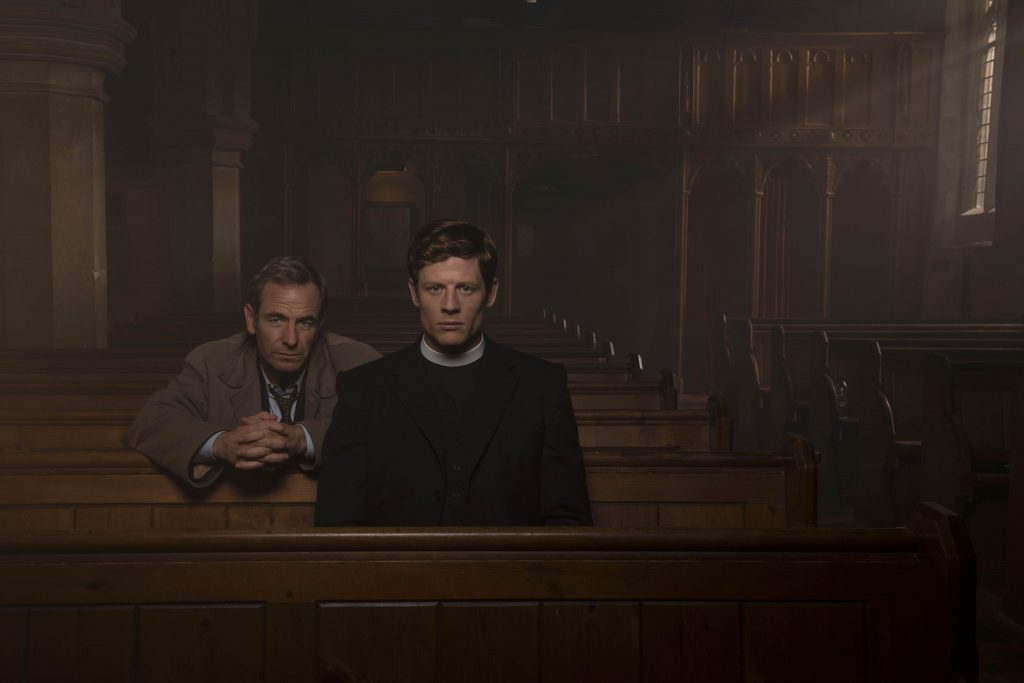
Grantchester
From the Masterpiece/PBS Corner
Question: Although I like The Good Wife (not as much now as in previous years), my Sunday night highlight over the last couple of months has been Grantchester, and it’ll be a long year until (hopefully) the next series. Any thoughts on the second season? – Christine
Matt Roush: Here’s how I welcomed the show back on the air (excerpting a review from TV Guide Magazine), and I agree it’s one of the more enjoyable Masterpiece Mystery! series in rotation, with tremendously charismatic stars in James Norton and Robson Green. With so much high-profile material to deal with on Sundays (Good Wife‘s end run, the various Walking Dead series and now Game of Thrones), I’ve been hoarding some of the Grantchester episodes for a leisurely catch-up when I get a breather (as if).
Question: Do you know what shows are coming up for Masterpiece Mystery? I know Wallander’s last series has just started. And was Grantchester picked up for another season? – Kohlson
Matt Roush: PBS has only released its summer Masterpiece Mystery! titles so far, which include a third season of Endeavour (the Inspector Morse prequel) starting June 19 and a final season of Inspector Lewis in August. A crime series from the makers of the original The Bridge, titled The Tunnel (about a body found in the Channel Tunnel between England and France), will also be airing in most markets. Look for the fall titles to be announced this summer. And no word yet on a Grantchester extension, but I’d be surprised if that’s not renewed.
Question: Thank you for all that you do. I wonder if some of those “TV will rot your brain” types have since reconsidered because television has become so immersive and participative now with social media—and Ask Matt columns. I have been a fan of yours for years since graduate school, when your columns and reviews were how I could keep up with shows and show stuff in between research and writing and teaching. OK, the question: What do you know about Indian Summers and Home Fires? I know that Season 2 of Indian Summers is currently playing in the UK, but has not been picked up for a third season. (Oh why!?) When will we see the season in the U.S.? And when does this feminist get to root again for the wonderful ladies on Home Fires at our own, well, home fires? – Ivy
Matt Roush: PBS hasn’t announced dates on either of these series yet—I’d expect them to show up in fall or winter—but I’m also bummed to hear that Indian Summers won’t go beyond a second season. That was a great escape and I’m looking to seeing where it goes next.
Would Less Be More For Long-Running TV Shows?
Question: If aging procedurals get more and more expensive to produce, why do so many contain 24 episodes per season, e.g., NCIS: Los Angeles, Hawaii Five-0, Elementary. If they would cut back to a maximum of 18 episodes per season, they would be less expensive to produce, and many of their viewers (this one in particular) wouldn’t be so burned out by the end of the broadcast season trying to keep up with all of them. Cable series are so much easier to deal with because of the more limited number of episodes per season. – Marci
Matt Roush: The networks have a very different economic model than cable, especially when it comes to hit procedurals that repeat and syndicate well and sell overseas. While anyone in the business would tell you how tough it is to maintain and sustain quality over the long run when churning out this many hours per season, and cutting back to a more reasonable 13 to 18 episodes would be a dream, there are just as many consumers out there who wish seasons would be even longer and who write in to complain when repeats invariably break up the cycle. The TV business is changing, though, and there are fewer series airing repeats, which will likely lead to shorter season orders in the future for a number of shows. But for now, success still breeds excess, especially in this genre.
A Lost TV Classic
Question: Since you brought up St. Elsewhere, I really wonder why that show has never gotten a decent treatment on DVD or other venues. I understand the music royalties and other issues like that probably hurt and the only season that ever came out (Season 1) was probably not the best one, but I really wonder if they could somehow bring it around. There were so many now-famous actors on it, and for people of our TV generation, I long to relive that world again. It’s sort of locked in that vault never to be seen again except through maybe crummy bootleg copies I’m afraid to order. I am almost finished rewatching thirtysomething, which mirrored my own life when it was on (a 30something married couple with kids and issues) but today, it still holds up pretty well sans the modern conveniences (we can’t find Gary…no calling of cell phones). But it’s all there on Hulu. Would love if all of St. Elsewhere was there as well. – Doug
Matt Roush: Give it time. Patience paid off for fans of breakthrough shows like China Beach and Hill Street Blues (like St. Elsewhere, an MTM standout), which took years to be available in deluxe boxed sets. At some point, a show with these credentials is likely to be licensed in its entirety to a streaming service—only the first season of St. Elsewhere is on Hulu, and you’re right that the best is yet to come—or to a premiere home-video company. I don’t keep up with that part of the industry until it comes through with something I covet (like China Beach), and I know I’d jump on a St. Elsewhere release faster than you can say Mrs. Hufnagle.
That’s all for now. Thanks for reading. We’ll pick up the conversation again soon, but I can’t do this without your participation, so please keep sending questions and comments about TV to [email protected] or shoot me a line on Twitter (@TVGMMattRoush). Or submit your question via the handy form below:
From TV Guide Magazine
Crime, Comedy & Convenience Stores: Unwrapping Hulu's 'Deli Boys' With the Cast
Cupcakes, corndogs…and cocaine?! Two brothers find themselves in a hilarious pickle when they inherit an unseemly bodega biz in Hulu’s new comedy Deli Boys. Find out how The Sopranos and Real Housewives of Orange County influenced the cast. Read the story now on TV Insider.

